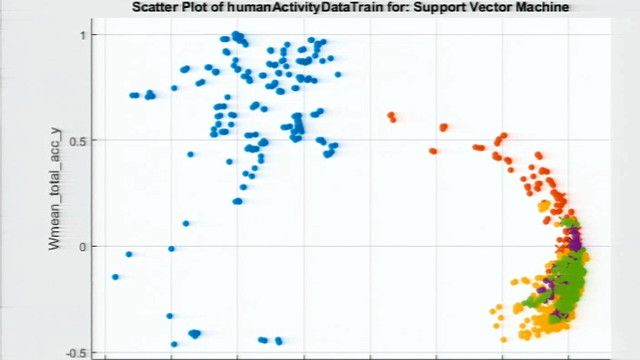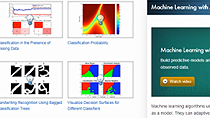Energy Speaker Series - Module 2: Utility Asset Condition Monitoring and Predictive Maintenance using Machine Learning and Artificial Intelligence
Niels Jessen, Wind Turbine Performance
Patrice Brunelle, Hydro Quebec
Steffen Ziggler, IMCORP
Session 2.1 Application of Artificial Neural Networks for Condition Monitoring of Wind Turbine Main Bearings – Niels Jessen, RWE Renewables
In a wind turbine, a failure of an important component, such as a main bearing, can lead to long-lasting downtimes and thus to a corresponding energy loss. In offshore wind energy, the problem is even more serious as maintenance work is not always possible due to adverse weather conditions and must be planned in advance. In order to save operational expenditure, wind farm operators are required to implement a maintenance strategy that enables them to predict a component’s failure as early as possible.
The RWE Renewables GmbH has developed an ANN based tool that predicts the temperature of undamaged main bearings based on a selection of SCADA signals. Anomalies are detected when the actual bearing temperature deviates from the predicted temperature. The tool was shown to be successful in detecting issues up to nine months before failure.
Session 2.2 Grid Fault Location Detection Using System Simulation and Machine Learning - Patrice Brunelle, Hydro Quebec; Graham Dudgeon, MathWorks
MathWorks and Hydro-Québec explore how both system simulation and machine learning can be used to develop algorithms that can detect the location of faults on electric grids using voltage sag measurements. System simulation is used to generate synthesized fault data that covers a broader operating envelope than measured data alone. The synthesized data is then used to train machine-learning classification algorithms. You’ll learn how the performance of classification algorithms may be used to provide further insight into the physical behavior of the system and any limitations associated with training data. You’ll also see how recommendations can be made from this insight to enhance system measurements and training data sets to improve overall classification accuracy.
Session 2.3 Signal Waveform Classification in Partial Discharge Applications for Underground Power Cables - Steffen Ziegler, IMCORP
Underground distribution cable system failures can be predicted! Predictive maintenance begins with understanding how cable system failures occur. Analyzing and interpreting results from partial discharge (PD) measurements taken in the field can be a complex task for humans. Machine learning algorithms and deep learning algorithms are used to automatically identify and categorize markers of defects contained in the PD measurements. These algorithms are used to categorize different defect types by risk of going to failures soon. Differentiating cables with “high to low risk defects” along with those that are “defect free” enables predictive maintenance. Examples of identified defects will be presented.
About the Presenters
Niels Jessen, Wind Turbine Performance Analyst, RWE Renewables, Germany
Niels Jessen studied mechanical engineering with focus on sustainable energy at Hamburg University of Applied Sciences (HAW Hamburg). He wrote his master thesis about the application of artificial neural networks for condition monitoring purposes of offshore wind turbines. He works since 2019 as Wind Turbine Performance Analyst at RWE Renewables.
Patrice Brunelle, Scientist, Hydro Quebec, Canada
Patrice Brunelle is a Scientist with the Research Center of Hydro-Quebec. Over the last 20 years his work has centered around Power Systems and Power Electronic and he has been involved in the development of Simscape Electrical Specialized Power Systems (formally Power System blockset, and later on SimPowerSystems). Patrice holds a B.Sc. degree in Genie Unifié from the Universite du Quebec a Chicoutimi, Chicoutimi, Quebec, Canada and a M.Sc. degree in electrical engineering in 1994 from Universite Laval, Ste-Foy, Canada.
Graham Dudgeon, Principal Product Manager, MathWorks Inc, USA
Graham Dudgeon is the Principal Product Manager for Electrical Technology at MathWorks. Over the last two decades Graham has supported several industries in the Electrification area, including Aerospace, Défense, Automotive, Industrial Automation, Medical Devices and Power & Utilities. Graham’s technical experience covers - Transmission & Distribution, Grid Integration, Renewable Energy, Power Conversion, Motors & Drives, Microgrids, Electric Aircraft, Electric Ship and Electric Vehicle, with an emphasis on system modelling and simulation, control design, real-time simulation, machine learning and data analytics.
Steffen Ziegler, Director- Signal Analysis & Artificial Intelligence, IMCORP, USA
Steffen Ziegler completed his Master of Science degree in Electrical Engineering from the Karlsruhe Institute of Technology, Germany. Since 1999 Mr. Ziegler is working for IMCORP and is currently the Director for Signal Analysis and Artificial Intelligence. He has specialized in the field of digital signal processing applications and machine learning and deep learning applications for underground power system cables. He is a member of the IEEE Power & Energy Society and contributes as a working group member at Insulated Conductors Committee (ICC) meetings. He is also a member of the VDE in Germany. Since 2015, Mr. Ziegler is a member of the Industrial Advisory Board of the ECECS department at the University of New Haven in Connecticut.
Recorded: 19 Nov 2020




